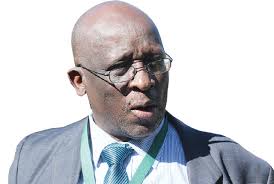Some Zimbabweans were able to withdraw U.S. dollars from automated teller machines this week for the first time in about a year as hard currency started trickling back into the economy following Robert Mugabe’s ouster as president.
Banks, according to Bloomberg’s report, had stopped stocking ATMs about a year ago as a severe cash shortage restricted access to dollars, which are accepted as legal tender in the southern African country. Cash withdrawals were allowed over the counter, but limited first to $50, then to $20 per customer.

Even so, lenders generally ran out of cash soon after opening, forcing thousands of cash-hungry Zimbabweans to sleep in queues outside banks overnight in the hope of getting their hands on banknotes. The country primarily uses the dollar for business transactions after outlawing its own currency in 2009.
“We’re seeing signs of renewed confidence in the economy since the inauguration of Emmerson Mnangagwa as president,” Willard Manungo, Zimbabwe’s finance secretary, said in a telephone interview from the capital, Harare, Bloomberg reports.
New users flood cryptocurrency exchange as Bitcoin hit $10,000 for the first time
Zimbabwe needs to “ride on the readiness of the new political dispensation to move forward,” he said.
In his inauguration speech on Nov. 21, Mnangagwa said turning around the economy and ending cash shortages would be the new government’s priority. Zimbabwe’s economic output has halved since 2000, which Mnangagwa attributed to “policy failures” under Mugabe.
South Africa’s Standard Bank Group Ltd, the U.K.’s Standard Chartered Plc, and Zimbabwe-listed CBZ Bank Ltd. are among lenders operating in Zimbabwe, according to Bloomberg News.








